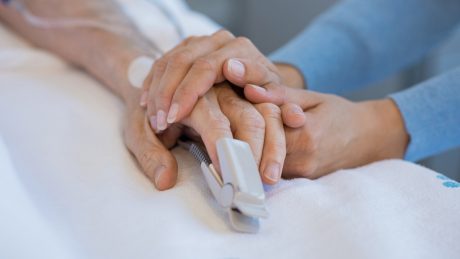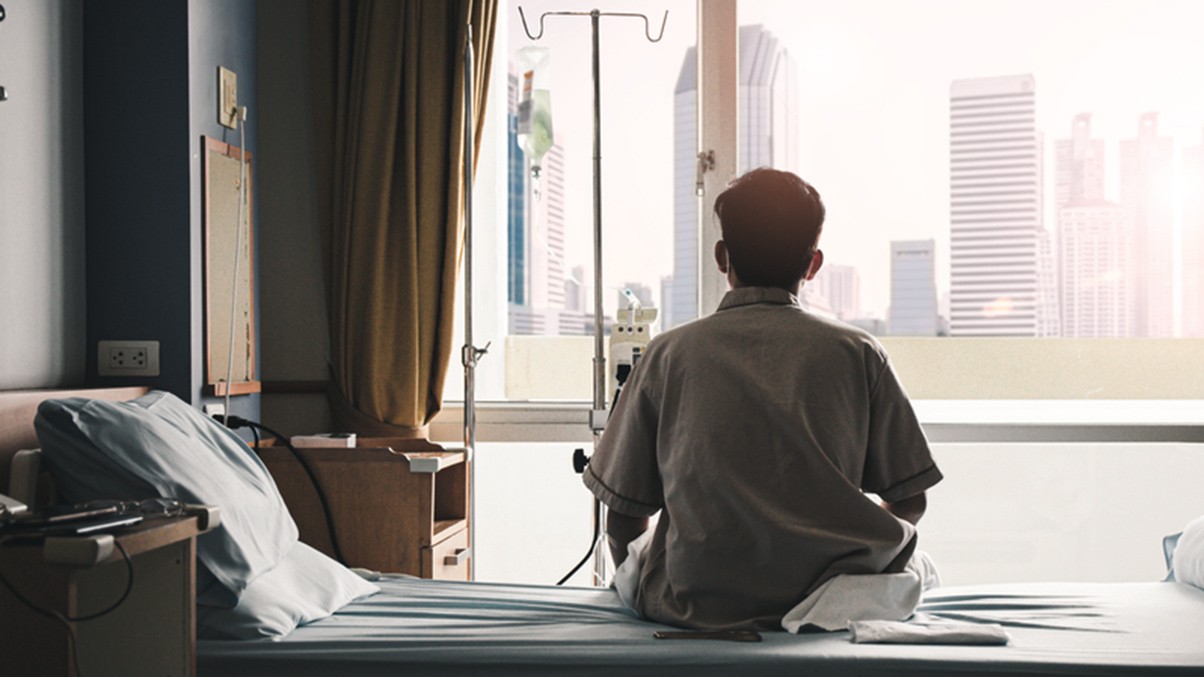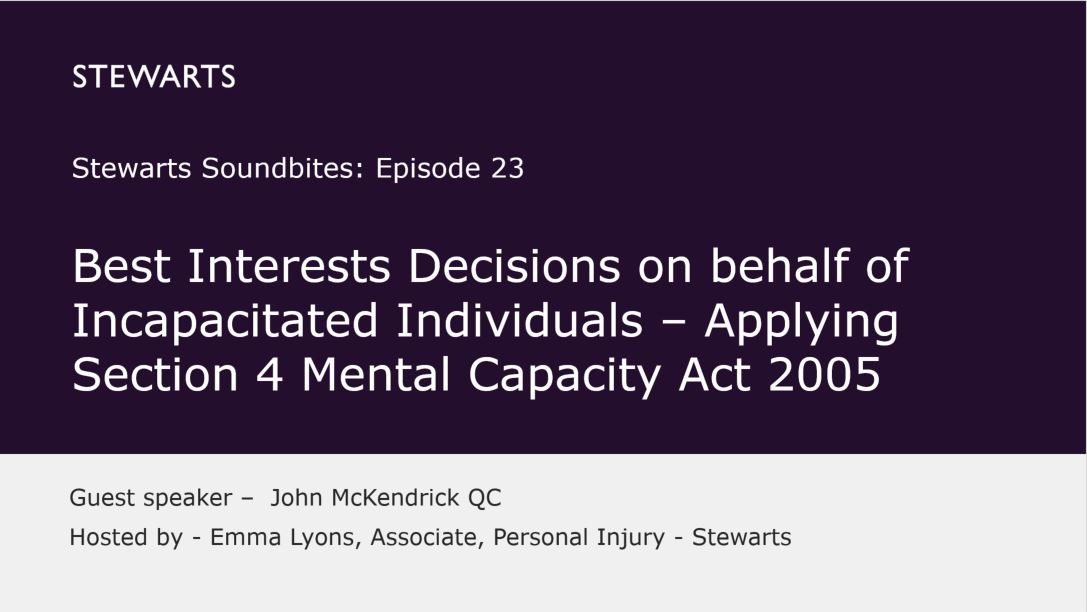This article considers how disagreements between clinicians and a patient’s family are resolved when the patient does not have the necessary mental capacity to decide about the future medical treatment they are to receive.
Clinicians will always involve a patient’s family in this decision-making process, and disagreements about what is in the patient’s best interest do not often occur.
A colleague of mine recently prepared an article on the legal position of advance decisions (living wills) and health and welfare lasting powers of attorney (LPA). However, what happens when neither of these exists?
Let’s consider the following scenario. Patient A’s clinicians want to withdraw life-sustaining treatment from him, but his wife does not want this to happen. His clinicians’ view is that there is no prospect of recovery and they wish to withdraw treatment. Patient A does not have the necessary mental capacity to make any decisions about his medical treatment and does not have an advance decision or a health and welfare LPA. What options are available to patient A’s wife to remedy this disagreement?
Best interests meetings
Clinicians will try to balance a patient’s family’s concerns, which might be achieved through a best interests meeting. Patient A’s clinicians would invite his wife to this meeting to allow everyone to express what they think is the best next step for patient A. At this meeting, the clinicians and patient A’s wife will try to agree the way forward for his medical treatment.
Court of Protection
If an agreement cannot be made at this meeting, patient A’s wife or the hospital can apply to the Court of Protection and ask them to decide the course of medical treatment. If the proposed medical treatment is life-sustaining (as is the case here), an application must be made to the court to protect patient A’s rights, which are guaranteed by the European Convention on Human Rights. The Court of Protection will consider the evidence presented to them and determine whether it would be in patient A’s best interests to withdraw medical treatment. The Court of Protection cannot order a clinician to provide a different type of medical treatment than that being offered.
Welfare deputies
An alternative route is for patient A’s wife to apply to the Court of Protection to be appointed as his welfare deputy. If his wife were to be appointed as his deputy, she would be able to make ongoing decisions in relation to his health or care as long as he lacks the capacity to make those decisions himself. The Court of Protection will only give patient A’s wife, as his deputy, the power to make decisions about specific issues; she would need to apply to the court if she wanted to make decisions that go beyond these issues. Although welfare deputies exist in practice, they are rarely appointed. The general assumption is that a welfare deputy should only be appointed in cases where ongoing medical decisions will need to be made within a short timeframe. The court would usually make a one-off decision about medical treatment in cases of disagreement rather than appoint a welfare deputy.
Therefore, although there are options for resolving disagreements between patient A’s clinicians and his wife, patients should consider making an advance decision or health and welfare LPA. This will ensure that their wishes about future medical treatment are clear if they lose mental capacity like patient A. It will also allow them to choose who they trust to make such decisions on their behalf in those circumstances.
The Legal Service – We are here to help
The Legal Service, delivered by our pro bono team, provides patients with advice without obligation, for however long it takes to resolve the issue. Our support is available regardless of the circumstances of an accident and regardless of whether a patient has a personal injury claim.
In these difficult times, the concerns of our pro bono clients are likely to be more stark than those in more fortunate circumstances. The Legal Service will be available throughout the crisis to help in any way we can to ease the burden on our clients.
To get advice from The Legal Service, please contact Kara Smith by phone on 020 7822 8000 or by email at ksmith@stewartslaw.com.
You can find further information regarding our injury expertise, experience and team on our Personal Injury pages.
Subscribe – In order to receive our news straight to your inbox, subscribe here. Our newsletters are sent no more than once a month.






